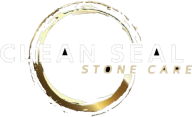Bluestone is a natural stone with a unique, mottled appearance and exceptional durability. It is incredibly hardy and can withstand time and harsh weather conditions. This is why you find it in many iconic Melbourne buildings, such as the Old Melbourne Gaol, Princes Bridge, St Paul’s Cathedral, and Melbourne Town Hall.
Like many natural stones, however, bluestone is porous and will stain, etch, and discolour if not correctly maintained.
Deep cleaning and care are essential for keep your bluestone pavers looking their best.
What NOT to Clean Bluestone Pavers With
Harsh Chemicals
One of the most important things to remember when cleaning bluestone pavers is to avoid using harsh chemicals and abrasive cleaners. Products containing acids, such as hydrochloric acid (HCl), can cause the iron and ferrous minerals naturally found in bluestone to react and rust, leading to discolouration and damage to the pavers.
Other acidic cleaning products, such as vinegar, lemon juice, and citrus-based cleaners, can cause etching on bluestone. This etching looks like dull spots or white stains on the stone. If you’ve got etching, you’ll need professional bluestone restoration to remove this.
Bleach
Similar to acidic cleaners, bleach-based products can also be detrimental to bluestone. Bleach can break down the sealant and cause the stone to become discoloured or stained.
Ammonia-Based Cleaners
You should also avoid using ammonia-based cleaners when cleaning your bluestone. These products can strip the sealant and leave the stone vulnerable to weathering and staining.
How to Clean Bluestone Pavers
Regular gentle cleaning is the key to keeping your outdoor space looking its best. Here are some tips for maintaining your bluestone pavers:
Clean Bluestone Pavers Regularly
Use a leaf blower or broom to remove any loose dirt, pet hair, leaves, and debris from the surface of your bluestone pavers. This will help prevent the buildup of grime and make the cleaning process easier. Use mats to wipe your feet.
Use a Mild Cleaning Solution
For a gentle, everyday clean, mix a few drops of mild dish soap with warm water and mop the pavers. Rinse the area thoroughly with fresh water to remove any residue. Allow to air dry.
Deep Cleaning to Remove Stubborn Stains
Over time, your bluestone pavers may develop more stubborn stains or a buildup of dirt and grime, requiring more intensive cleaning.
For organic stains, such as those caused by spills or outdoor dirt and debris, use a cleaning product specifically designed for natural stone. These are usually mild, pH-neutral cleaners that won’t react with the stone.
Apply the solution according to the manufacturer’s instructions (please read the bottle, they are all different), let it sit for a few minutes, and then mop or rinse. If you need to scrub, use a soft-bristle brush. Rinse thoroughly with clean water to remove any residue.
Sealing Bluestone Tiles and Pavers
After a deep cleaning, we highly recommend resealing your bluestone paving to help protect against stains and make cleaning easier.
This is particularly important in outdoor entertaining areas where oil splashes from the BBQ, food and drink spills, and exposure to the weather can affect the appearance of your bluestone pavers.
To tell if your bluestone needs sealing, slowly pour water on the pavers. If it beads, the sealant is okay. If it spreads and soaks into the stone, it’s time to reseal.
You can buy do-it-yourself sealants from hardware stores. However, these really don’t compare to the industrial-grade stone cleaners and penetrating sealers we use at Clean Seal Stone Care.
DIY products wear off quickly, particularly when using a high-pressure water cleaner or in high-traffic areas.
Our bluestone sealing services include thoroughly cleaning, removing stains, and applying a penetrating sealer to seal the porous stone from the inside out. The sealer generally lasts up to 2 years and keeps the bluestone pavers in your home looking their best.
We're The Right Company To Restore Your Natural Stone
1300 952 847
